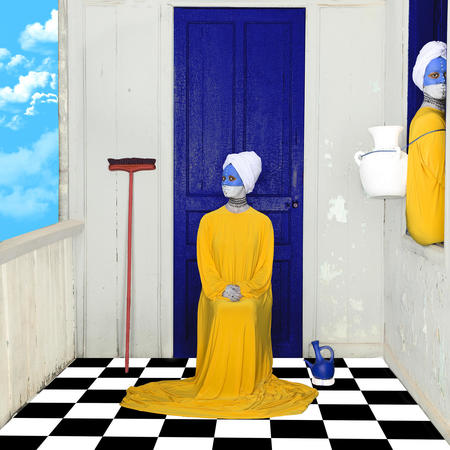European Development Days – the right time and place to remind leaders why water, sanitation and hygiene matter

On 18 and 19 June, a WaterAid delegation from the UK, Nepal, West Africa and Burkina Faso will take part in the European Development Days (EDD) – Europe’s leading development forum – in Brussels. Participating in the EDD is nothing new for us, but this time is a bit different. Sophie Aujean, our European Union Representative, explains.
Why is this year’s EDD so important?
2019 is a key year for the European Union. Critical EU elections took place a few weeks ago – critical because this legislature is the last opportunity for the European Parliament to show the way for strong EU leadership on Agenda 2030. Newly elected Members of the European Parliament will sit together for the first time in July in Strasbourg. In the autumn, the new European Commission will take up office, with the huge responsibility of making the right choices to firmly anchor its action towards sustainable development. Between both of these institutional milestones, the UN High Level Political Forum (HLPF) will meet in New York.
The EDD is very timely, because it contributes to setting the agenda and guiding the key political decisions that civil society actors across Europe and the world are expecting EU leaders to make.
Focus on inequalities – at the heart of the development agenda
It is quite exciting that this year’s EDD theme is addressing inequalities and leaving no one behind. Tackling the inequalities that prevent the poorest and most marginalised people from realising their right to safe water, sanitation and hygiene is one of WaterAid’s strategic aims and a fundamental pillar of our work. SDG 10 is also one of the goals that the HLPF will review.
At WaterAid, we want to understand why, in 2019, millions of people still live in water and sanitation poverty, because we want to focus our energy on the deep roots of WASH poverty.
Hear our positive results from a human rights-based approach
One of the key ways to address WASH poverty is to empower communities to advocate their rights to water and sanitation. Our stand at the EDD will present Making Rights Real – our project to support local government officials to reach everyone, everywhere with WASH through using a human rights-based approach. We have implemented it in several countries – Bangladesh, Bhutan, Burkina Faso, Ethiopia, Ghana, India, Kenya, Laos, Mozambique, Nepal, Sierra Leone and Uganda – and results are promising. Highlights include:
• It has helped clarify decision makers’ roles and responsibilities.
• By making their work more effective, it has also increased officials’ motivation.
• Officials now have a much stronger understanding of the specific needs of marginalised people in relation to WASH.
• Efforts have also been made to make information about water and sanitation services and plans available and accessible to everyone.
However, inequalities and low access to basic social services also stem from global regimes of taxation and debt, and the way these enable countries to or restrict them from funding their WASH sectors and national development plans. At EDD, we will host a lab debate on our vision around the need to curb tax evasion and avoidance and to radically increase overseas development assistance and climate finance, targeted to low-income countries.
In addition to our stand and the debate, we are delighted to host ‘Water for life’ – a stunning exhibition, in partnership with the H&M Foundation, of works by Ethiopian artist Aida Muluneh, created to represent what the lack of access to clean water and decent means.
Now is a key moment for the EU to ensure sufficient funding
The EU is currently negotiating on its budget for the next seven years, which will determine the amount of funding assigned to EU aid, and the structure of the EU development and cooperation instrument. At last, although it seemed that WASH was deprioritised over the previous period (2014–20), there are signals of renewed political momentum on WASH at EU level. Last November the EU adopted European Council conclusions on water diplomacy, and today it adopted human rights guidelines on the rights to water and sanitation. And this November an EU reference document on is expected to be launched, just when the new European Commission takes up office.
EDD 2019 is therefore a great opportunity for us to keep on pushing WASH up the EU political agenda. We will set up meetings between our country programmes and EU officials, to keep up the momentum and noise on the need to prioritise it as a key enabler in ending poverty. We hope the choice of this year’s theme, ‘Addressing inequalities: building a world which leaves no one behind’, indicates a firm will from the EU to address the root causes of poverty and marginalisation, and make clean water, decent toilets and good hygiene normal for everyone, everywhere.
Our lab debate on bridging the financing gap for Sustainable Development Goal 6 – featuring Celine Robert (French Development Agency), Jan Van de Poel (Eurodad), Frierderike Roder (The ONE Campaign) WaterAid UK’s Savio Carvalho, and WaterAid Nepal's Pratibedan Baidya – is at 14:45 on 19 June.
Visit our stand any time to learn more about our Making Rights Real project on a human rights-based approach.
Stay up-to-date by following @EuWateraid and @sophieaujean
Sophie Aujean is EU Representative at WaterAid.




